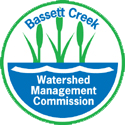News
EcoFaith Network Puts Creation Care in Action
Tue, Apr 10, 2018Minneapolis-area congregations work together to make clean water a tenet of safe and healthy communities.
You might say that Emilie Bouvier was a born-and-raised watershed enthusiast. While growing up in Nebraska, each year her family observed the sandhill crane migration across the Platte River. She’s continually inspired by hearing stories that connect people to land and place.
Bouvier serves as the Congregational Organizer for Environmental Justice at the Minneapolis Area Synod of the Evangelical Lutheran Church. She spearheads the EcoFaith Network’s watershed clean-up initiative, and this work has had a ripple effect both within and beyond her faith community.

Three years ago, Bouvier put her passion to work when she volunteered to join the Minneapolis Area Synod’s Creation Care Committee. The Minneapolis Area Synod serves 147 Lutheran congregations in the metro area, supporting church leaders, pastors, and deacons. In some ways, the synod also mirrors congregational structure by forming issue committees such as the Creation Care Committee.
Soon after starting as a volunteer, Bouvier saw the tremendous potential for the committee to adopt an environmental justice framework to empower church leaders to “take collective action.” This new framework resulted in a new committee name: the EcoFaith Network. Bouvier’s volunteer position soon grew into a full-time job, coordinating watershed stewardship across the synod.
Moving Beyond the Sanctuary Walls
The EcoFaith Network quickly honed in on watershed cleanliness as an area of focus. “As people of faith, we use water in worship space and scriptural stories all the time,” says Bouvier. The symbolic resonance of water in Christianity — as well as the abundance of lakes and rivers in the state — offered a rich opportunity for collective action. The EcoFaith Network’s projects have ranged from church property clean-ups like leaf-sweeping and storm drain stenciling to larger, cross-congregational gatherings.

Several congregations joined together for a recent Gather at the River event at the Mississippi Watershed Management Organization. The event began with watershed 101 education and culminated in song and prayer. “We prayed, sang “Shall We Gather at the Water” while walking down tiers of rain gardens, and stood on the banks of the Mississippi to have readings, be in community, and pray for the water. People left both knowing more and feeling more connected and energized to make a difference,” says Bouvier.
The EcoFaith network is always looking for ways to connect their projects with the community beyond the sanctuary walls. Recent partnerships have included environmental organizations like the Minnehaha Creek Watershed District and Mississippi Watershed Management Organization, as well as youth-focused organizations like Wilderness Inquiry and Growing Green Hearts. The EcoFaith Network also sent a group to be present at Standing Rock during resistance protests.
Local Resolution Encourages Nationwide Effort
Pastor Christine Chiles of Maple Grove Lutheran Church notes the incredible groundswell of support the EcoFaith Network has discovered within congregations. She sees part of her job as “helping people who are worried about climate change and the condition of the planet know that, yes, this is part of your calling. It is part of your vocation in the world to care for God’s creation.”
Chiles works with members of her church on watershed stewardship through advocacy and policy as well as projects at her own church’s buildings and properties. A recent youth project culminated in the installation of a water fountain and bottle filling station that tallies the number of plastic water bottles saved.
To share this initiative with the Lutheran church’s national network, Chiles recently put forward a resolution about water stewardship on the national ELCA website. “The resolution urges every congregation nationally to at least know what watershed they’re in.” By encouraging this first step, the EcoFaith Network aims to inspire Lutherans to work together on water stewardship.
Bouvier sees the EcoFaith Network as filling a special place in the broader environmental movement. She notes that organizing “through a faith community is a great way to engage people where their values intersect with their neighborhood.” It also provides a unique opportunity to encourage congregations that might not otherwise work together to partner because they’re in the same watershed. Chiles agrees, adding that “we all live downstream.”

- To learn more about the EcoFaith Network and take action in your faith community, check out their online watershed toolkit. The resource includes youth education plans, theological resources, and next steps.

